Since March 26, Operation Lifeline Udan has carried 885 tonnes of critical medical supplies and essential cargo over 500,000 km through 546 flights to the remotest destinations in the country. Under the Vande Bharat Mission, as the first schedule dovetails into the second schedule of flights, the Government of India (GoI) plans to bring 50,000 stranded Indians back to the country by the end of May. These are some of the responsibilities that the GoI has been engaged in as a response to the coronavirus disease (Covid-19) crisis, even as we contemplate reopening domestic aviation. But what has the Opposition been engaged in during this critical time?
A credible Opposition is imperative for democratic functioning. This becomes even more important in times of crises. The challenges of governance to deal with the pandemic are setting a new template. The changing stances of the Opposition that seek to use this humanitarian crisis as an opportunity to reclaim their lost political relevance will be scrutinised with the same care that the government’s activities will be subjected to.
India was among the first to wake up to the threat of the pandemic by screening passengers, stopping flights and enforcing a nationwide lockdown. When the nation emerged as a prescient and responsible nation globally in having taken pre-emptive measures to stop the spread of the virus, the Opposition called the lockdown sudden, harsh and unilateral. If it was not for the lockdown, we would have found ourselves in the same boat as many of the more developed nations where more than thousands have been dying every day.
Even as GoI initiated immediate support to farmers, construction workers, poor women, elderly, labourers, low-salaried workers and other vulnerable sections under the ~1.7-lakh crore Pradhan Mantri Gareeb Kalyan package, the Opposition suggested that the government doesn’t care for the poor. Several facts such as the approval of 6.3 million loans worth ~86,600 crore in agriculture between March 1 to April 30, and an additional allocation of ~40,000 crore under the Mahatma Gandhi National Rural Employment Guarantee Scheme as compared to last year, to benefit wage seekers fly in the face of such falsehood.
The Opposition’s response to the Atmanirbhar Bharat Abhiyan (Self-reliant India Campaign) has been particularly surprising. Before the announcement, the Opposition talked of improving liquidity and extending support to micro, small and medium enterprises (MSMEs).
When the details of the ambitious and holistic package extending several innovative measures for MSMEs, at the cost of over ~6 lakh crore were announced, prominent members of the Opposition changed the goalpost, suggesting that no measures had been taken for migrant workers. In their zeal to criticise, they were perhaps blind to the fact that most migrant workers are in fact employed in MSMEs, and these steps would benefit them.
The next day, when specific measures to assist our migrant workers by giving them one-nation, one-ration card for access to Public Distribution Scheme (PDS), affordable rental housing through public-private partnership, interest subvention for the Mudra Shishu Loans and credit for street vendors were announced, some Opposition members tried to belittle them by suggesting that street vendors do not go to banks for credit and take loans at 1% per day.
Through the several initiatives over the past six years such as the Jan Dhan Yojna, direct benefit transfer, Pradhan Mantri Awas Yojana, Ayushman Bharat Yojana and Ujjwala Yojana, the Centre has used technology to provide the benefits of governance to the most vulnerable sections. The government will partner with non-banking financial companies, microfinance institutions and banks to extend working capital loans to street vendors, and interest subvention scheme under the Deendayal Antoyodaya Yojana-National Urban Livelihoods Mission will be worked out to reward vendors for good repayment behaviour and upscale their entitlement for bigger loans. Under the one-nation, one-ration card initiative, 670 million beneficiaries in 23 states, covering 83% of PDS population, will be covered by national portability by August.
Changing track, some Opposition members have held that easy loans for MSMEs do not constitute a stimulus as a loan is normal banking practice and only fiscal measures count. But people understand that a stimulus is anything that helps people, especially getting their businesses back on their feet. By giving credit guarantees, the government is trying to stop companies from going bankrupt and improving liquidity to MSMEs will help them to restart activities quickly. If this is not a stimulus, what is?
Similar intellectual ineptitude has been shown in response to the prime minister’s call to undertake far-reaching land, labour, liquidity and legal reforms to make India self-reliant by leveraging demand in the country. Even though the prime minister specified that the approach is to be self-reliant by participating and leading the global value chains without being self-centred or inward-looking, the Opposition resorted to scaremongering about multinational corporations being shown the door when the exact opposite is being attempted by the government.
As more steps are announced for the Atmanirbhar Bharat Abhiyan , the Opposition will be further exposed. In a democracy, when the main Opposition party fails to win even 10% of the seats in the Lok Sabha, a certain level of desperation is understandable. But, if it loses its ability to engage in constructive criticism in this haste to weave false narratives, it further compromises its relevance in the political system.
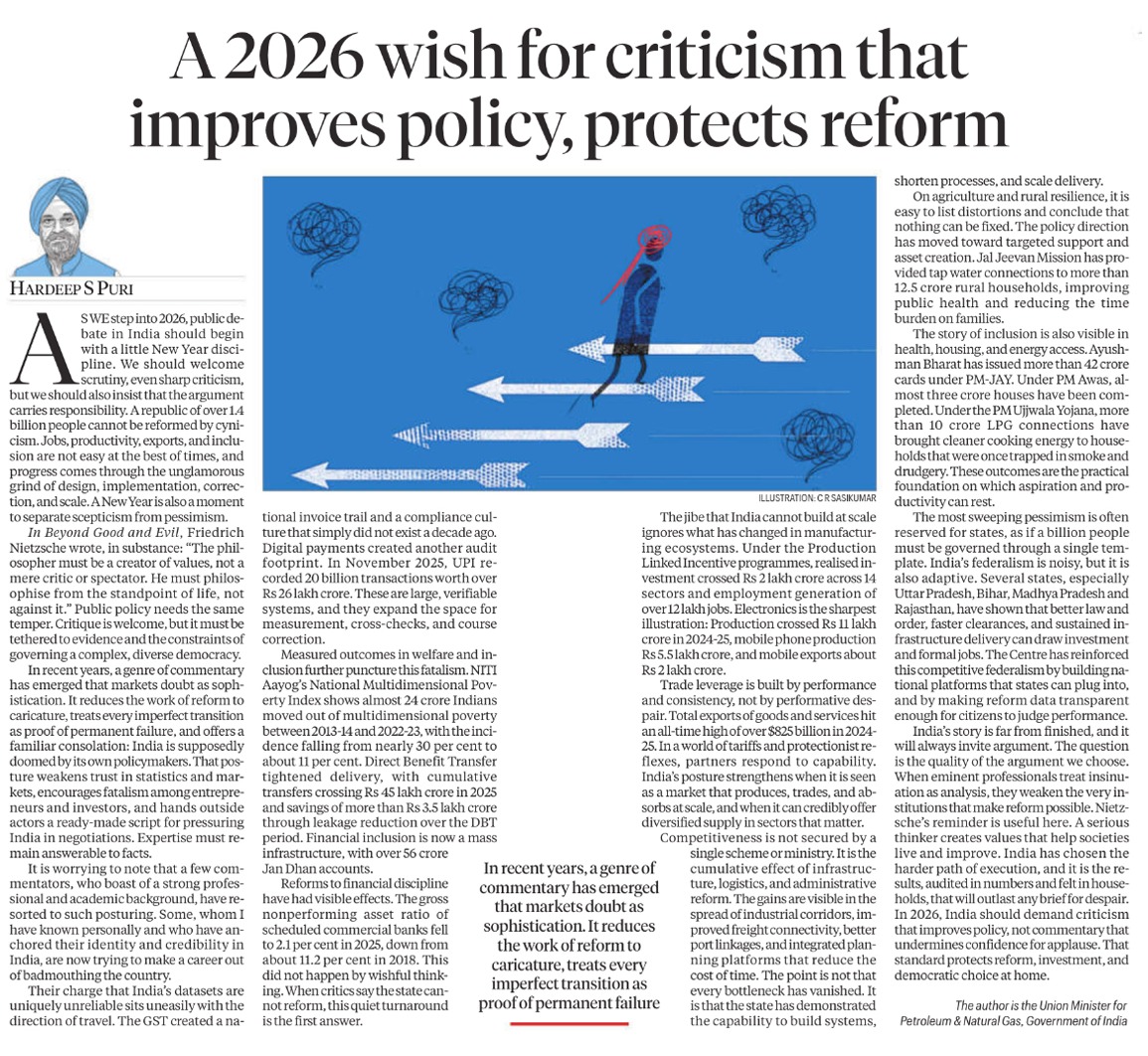
Our democracy benefits by criticism, but not by motivated fatalism by some “experts”, who seem more guided by their politics r...
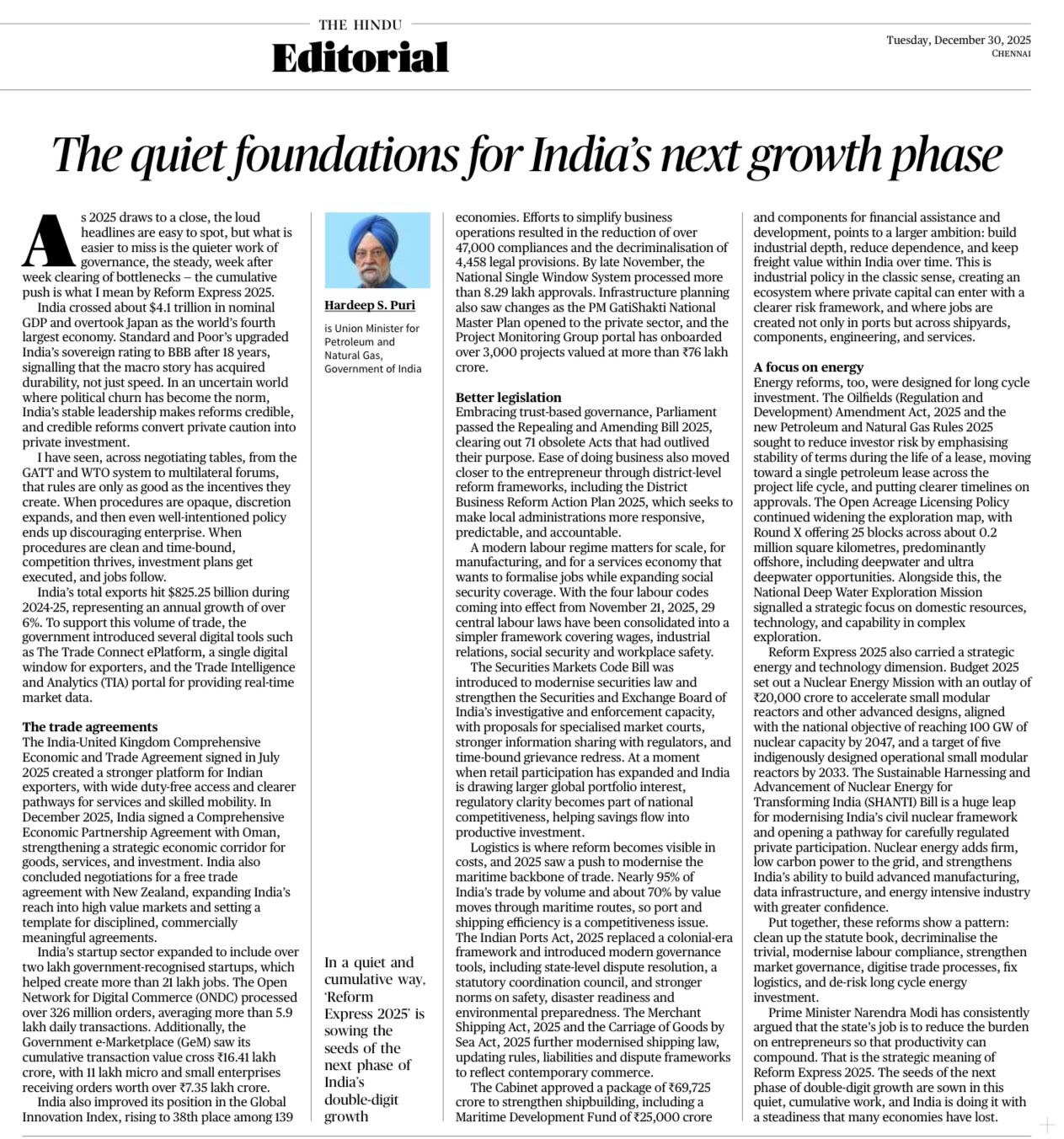
The quieter work of governance, the steady, week after week clearing of bottlenecks - this cumulative push is what I mean by Refo...
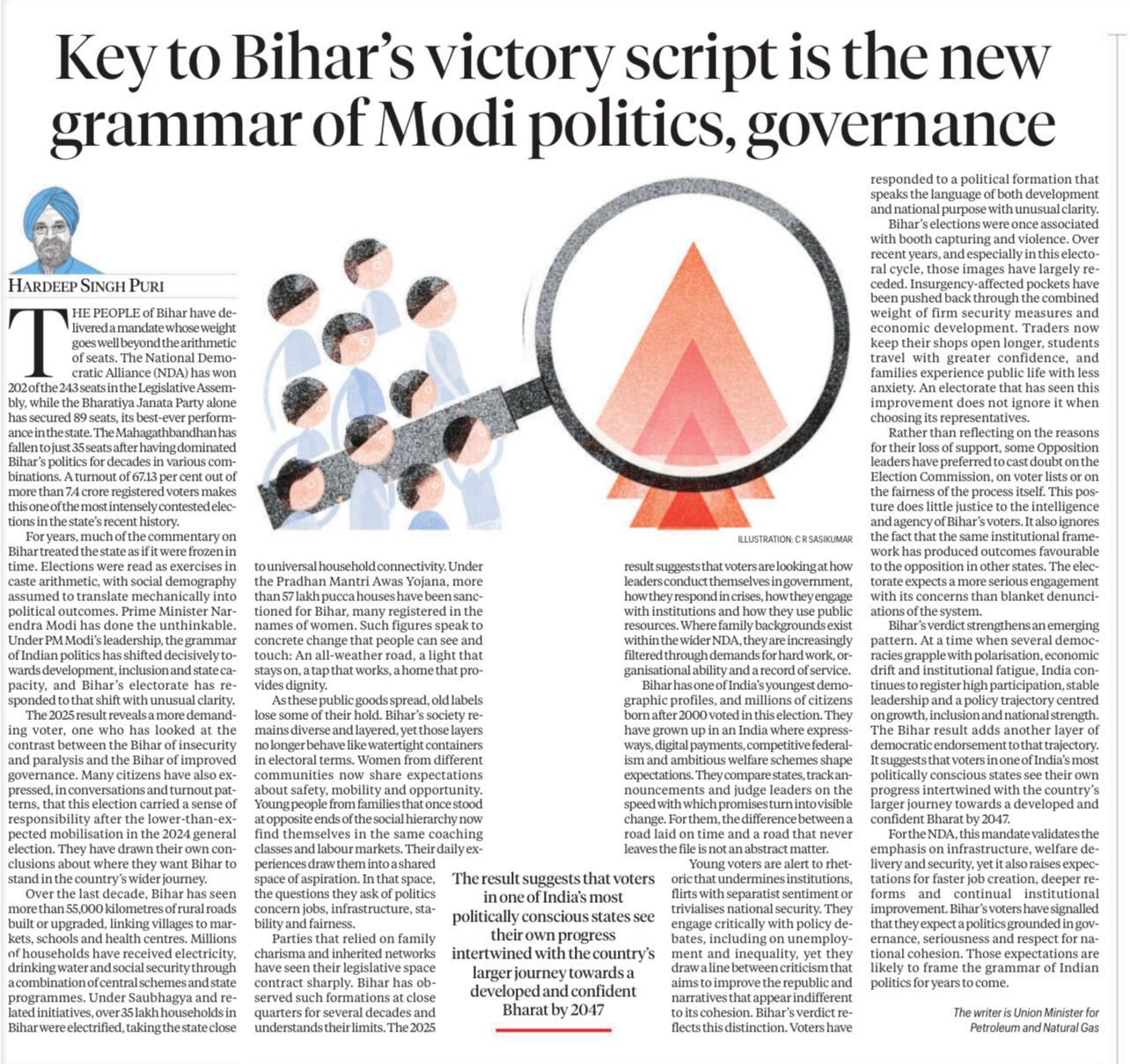
PM Sh Narendra Modi Ji has done the unthinkable in Bihar and it will change the grammar and lexicon of Indian politics for the ti...
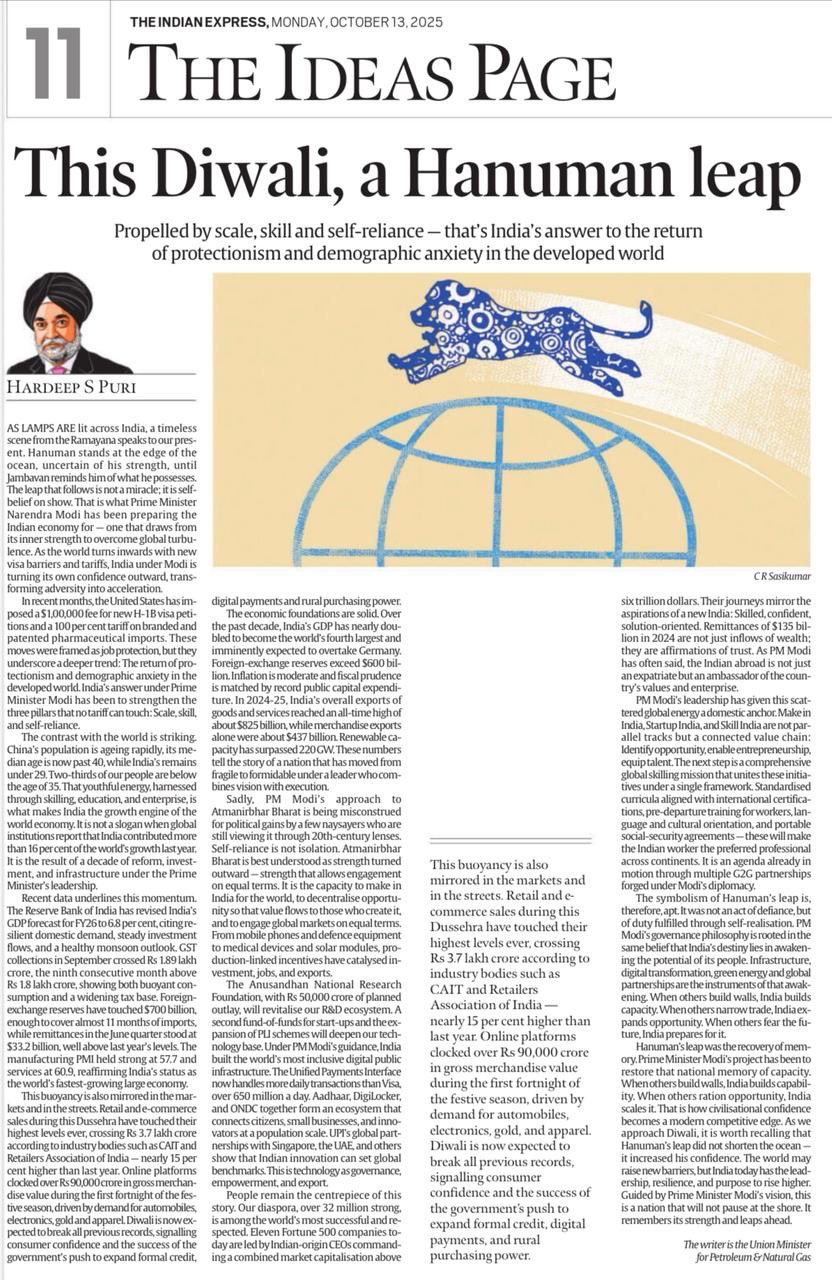
As the world passes through a period of geopolitical turmoil and uncertainty, India, under the visionary & decisive leadership of ...
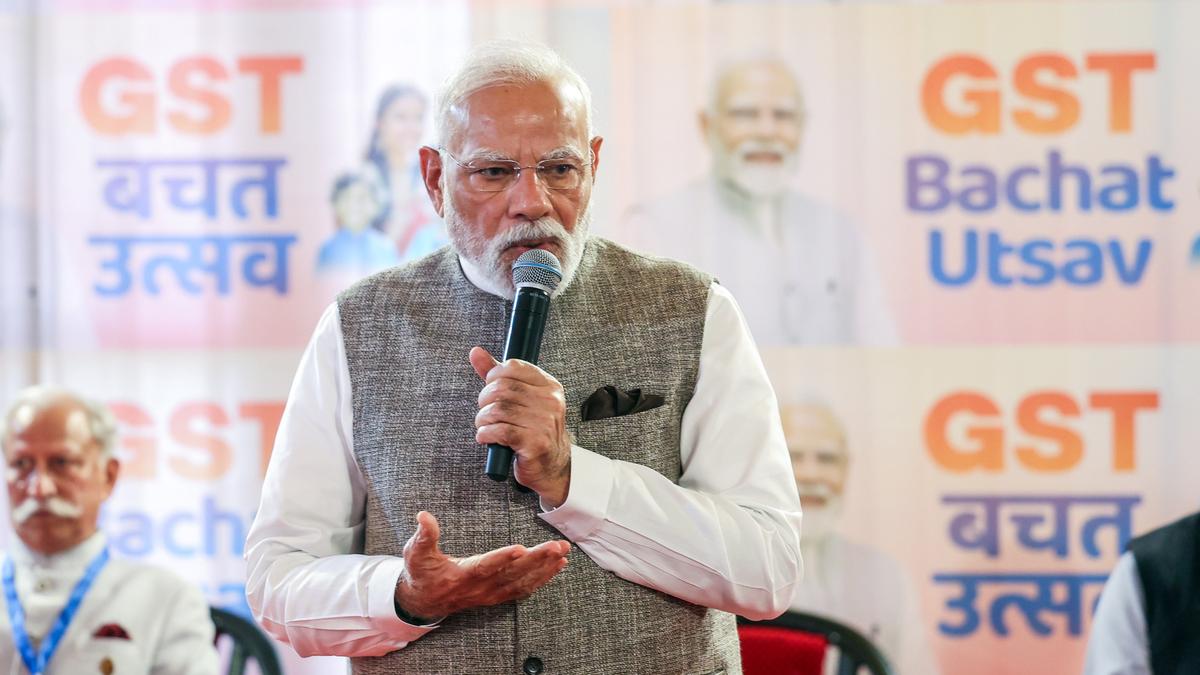
The Prime Minister’s professionalism and work ethic are what make the difference on the ground Praise has been showered on Pr...
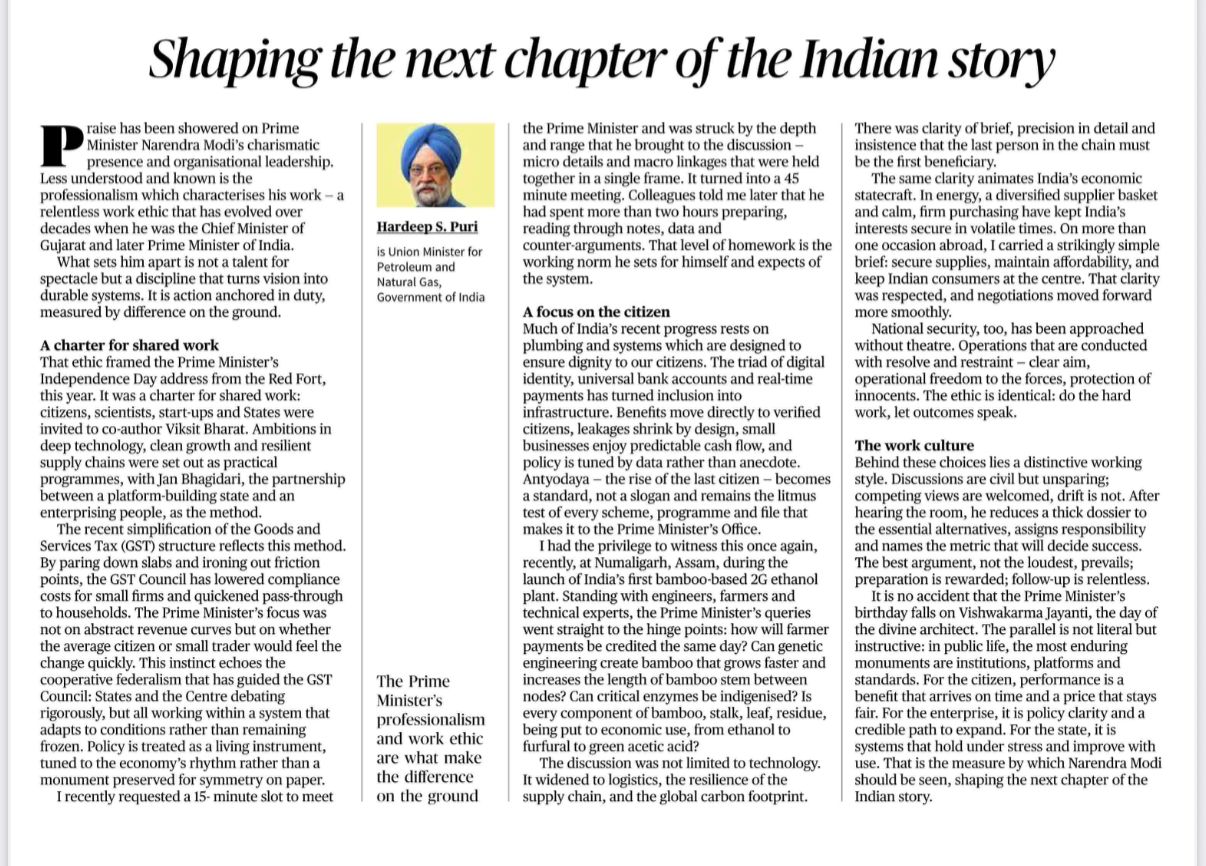
Shaping the next chapter of the Indian story!...
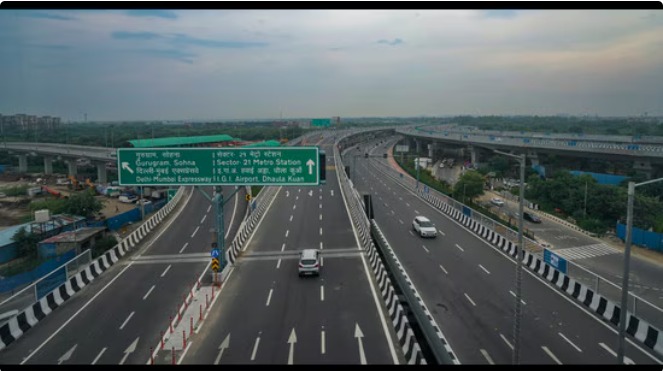
Indian cities are again on that path to being modern yet humane, ambitious yet inclusive, global in outlook yet rooted in our valu...

India’s fact-rich story of resilience, growth and energy security will silence the ‘global doubters’ who call it a ‘dead e...
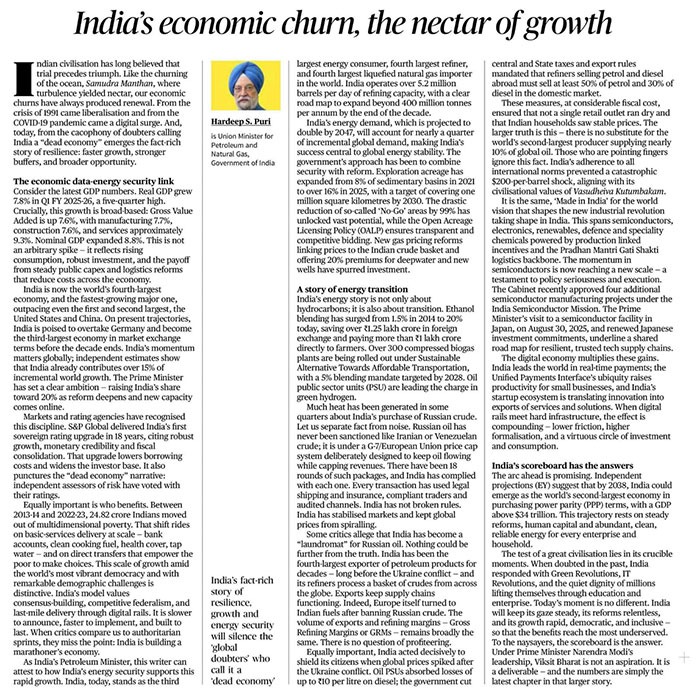
The test of a great civilisation lies in its crucible moments. When doubted in the past, India responded with Green Revolutions, I...